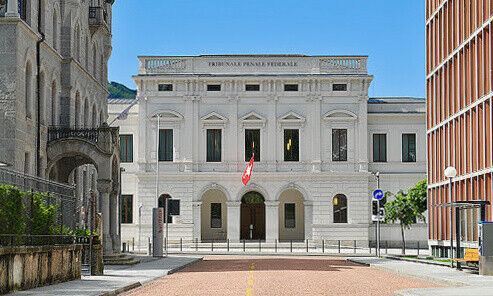Credit Suisse is the defendant in one of the first-ever Swiss criminal cases against a firm. The Swiss bank's fate sets a precedent for how corporations are held liable for wrong-doing.
Switzerland’s secretive banking industry is about to get another jolt of transparency: Zurich-based Credit Suisse and Falcon, a now-defunct wealth manager, are the first Swiss firms ever in to make their way through the Swiss criminal justice system for corporate wrong-doing.
The two are poised to set a precedent for an 18-year-old criminal code that until now has never been tested in a court of law in Switzerland – where most firms not just in finance shun the public court system, for fear of damage to their reputation. The dearth of court cases fuels criticism of Switzerland as lax on white-collar crime.
Swiss Banks In Crosshairs
On Monday, a judge begins hearing a criminal case against Falcon, a now-defunct Swiss private bank, as well as its CEO of nearly two decades, Eduardo Leemann, over money laundering. He denies any wrongdoing and the bank, being wound down following a 2016 regulatory walloping, rejects allegations of organizational shortcomings.
The larger case – Credit Suisse’s entanglement with the «Cocaine King» of Bulgaria – is scheduled for February. Prosecutors allege the Swiss bank as well as a former executive rinsed more than $100 million in drug proceeds that in turn flowed into real estate in Bulgaria as well as Switzerland.
Credit Suisse said it was «astonished» to be indicted, rejects the charges, and will fight.
Seeking Legal Clarity
The outcome of Falcon’s and Credit Suisse’s criminal trials are meaningful in a wider sense, according to Simone Nadelhofer, a Zurich-based partner of Swiss law firm Lalive. «Some legal questions around corporate criminal liability remain unanswered and have never been tested in court,» she told finews.com.
It isn't clear, for example, what sanctions, financial penalties, or restitutions companies would face if found at fault in a court of criminal law.
The courtroom is little-tested because Switzerland’s attorney general has instead quietly widened the use of simplified proceedings meant for minor transgressions to high-stakes cases in recent years – a sore point with transparency organizations.
Laundered Money
The closest Switzerland has come to gauging corporate criminality is a 2016 Swiss court decision over a 4.6 million Swiss franc ($5 million) cash payout by a Swiss postal office teller which turned out to be laundered money.
The episode, while frequently cited in the legal community, is not exactly interpretative for major corporations like Credit Suisse involved in multi-billion franc cases.
Billions In U.S. Fines
And unlike the U.S. and U.K., Switzerland has no legal means for prosecutors and companies to avoid costly, public trials by agreeing on settlements and financial penalties.
UBS and Credit Suisse have over the years paid billions in penalties in the U.S. after clinching countless so-called deferred prosecution deals, or DPAs, for cases ranging from helping Americans cheat on their taxes to rigging foreign currency markets.
French «UBS» System
France adopted a similar system four years ago – the CJIP, or «convention judiciaire d'intérêt public» – due in large part to UBS’ travails with Paris prosecutors. Former Swiss attorney general Michael Lauber championed a similar system, but the government in 2019 quashed it as «questionable and alien to our system».
Nadelhofer, the Lalive partner, said the legal community would welcome clarity from Switzerland’s court system on legal practice with corporate crime, «but the question is whether you want to be the first company to fight charges and set a legal precedent for others.»
High-Profile Scandals
The stakes in the coming criminal trials are wildly higher for Credit Suisse, seeking recovery in several high-profile scandals than for Falcon, which was forced to sell itself to a rival after failing to recover from its dealings with 1MDB.
Ironically, companies would be interested in DPAs because suspected wrong-doing – such as raised by whistleblowers – today automatically sparks a criminal probe.



































